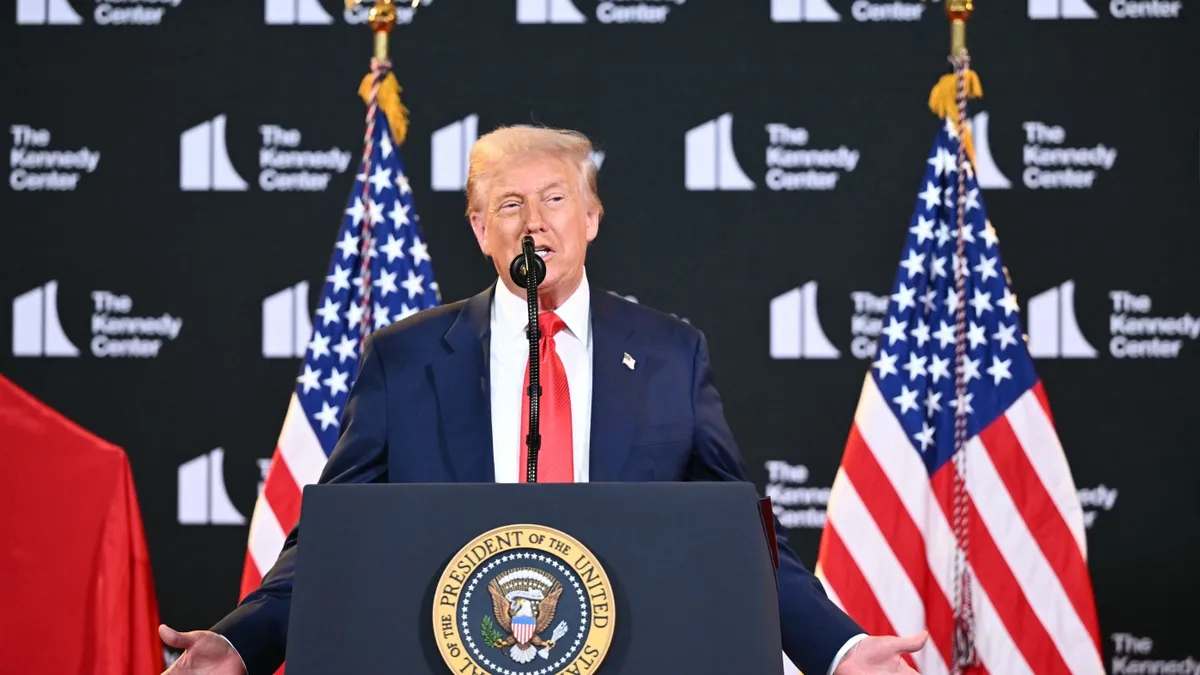
As Corporate America grapples with the evolving landscape of U.S. business under President Trump, many companies find themselves hesitant to engage in public disputes with the administration. This reluctance has resulted in President Trump gaining an extraordinary amount of influence over the future direction of U.S. business. In recent weeks, the president has escalated his demands on major corporations and their leaders, establishing an unprecedented level of governmental oversight.
Throughout his political career, President Trump has made headlines for publicly targeting businesses and their executives. However, the current climate marks a significant shift as he has begun demanding the termination of executives who are not widely recognized, such as a corporate economist from Goldman Sachs. Most notably, Trump announced a controversial deal allowing the U.S. government to take a 15% share of Nvidia's H20 chip sales in China, linking this arrangement to the easing of export restrictions.
Ryan Bourne, an economist at the Cato Institute, noted that Trump's approach to influencing business practices has reached new heights in his second term. The Nvidia revenue-sharing arrangement raised alarms within the business community, traditionally aligned with fiscal conservatism and pro-free market principles. By demanding a cut of private companies’ sales, Trump challenges the core tenets of free-market capitalism, a cornerstone of Republican ideology.
Business experts, including Jeffrey Sonnenfeld from Yale University, express growing concerns about the potential transformation of the U.S. economy into a system reminiscent of state capitalism seen in China. Sonnenfeld describes this trend as a “Marxist MAGA” movement that undermines private-sector decision-making and creates a landscape where corporate success hinges on cronyism.
While a spokesperson for the White House, Kush Desai, touted Trump’s leadership as a pathway to a new "Golden Age" for America, the sentiments among corporate leaders reflect significant unease. Many businesses are now striving to avoid political entanglements, focusing on securing Trump's approval rather than openly criticizing his policies.
In stark contrast to the early days of Trump's presidency, when corporate leaders were willing to speak out against controversial policies, many have since adopted a more cautious approach. Notable CEOs like Tim Cook (Apple), Mark Zuckerberg (Facebook), and Jeff Bezos (Amazon) attended Trump's second inauguration, signaling a shift towards seeking favor rather than engaging in public dissent.
Despite Trump's aggressive reshaping of the U.S. economy through tariffs and import taxes, corporate America’s silence remains pervasive. Business leaders are wary of inciting Trump's wrath, with CEOs like Intel's Lip-Bu Tan feeling the pressure directly. After Trump demanded Tan's resignation over alleged conflicts of interest, the CEO managed to reverse the situation by meeting with the president, demonstrating the delicate balance corporate leaders must maintain.
As President Trump intensifies his critiques of major corporations and their executives, the pressure mounts for collective action within Corporate America. Trump's public demands have included warnings to automakers against raising prices and calls for Walmart to bear the costs of his tariffs. These actions have led to significant market fluctuations, with Trump's tweets directly influencing stock prices.
Experts predict that it may take a more severe economic downturn for CEOs to feel empowered to voice their objections to Trump's policies publicly. Sonnenfeld suggests that business leaders need to present a compelling economic rationale for any criticism, rather than relying solely on ideological arguments.
As the situation unfolds, business leaders are encouraged to consider collective action as a viable strategy for defending their independence. Sonnenfeld emphasizes that confronting a "bully" like Trump requires a unified front, which could prove essential in safeguarding the principles of free-market capitalism amid rising government influence.
In conclusion, the interplay between Corporate America and the Trump administration signals a pivotal moment in the U.S. economy. As businesses navigate these challenges, the long-term implications for corporate governance and economic policy remain to be seen.